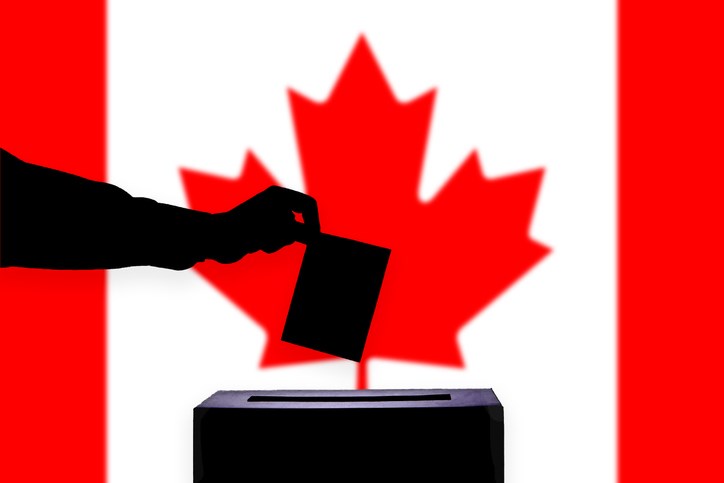A sa���ʴ�ý Supreme Court judge has affirmed the right of British Columbians to challenge federal political parties under provincial privacy laws, in order to determine what personal information politicians hold on you and how they are using it.
In a , via judicial review, Justice Gordon Weatherill affirmed the prior decision of special outside adjudicator David Loukidelis K.C. that British Columbia’s Personal Information Protection Act (PIPA) is constitutionally applicable to the collection, use and disclosure of personal information in sa���ʴ�ý by federal parties.
In summary, in 2019, three sa���ʴ�ý residents had asked federal political parties to disclose what information the parties held on them and what the parties were doing with the information.
Unsatisfied with the parties’ responses, the residents complained to the Office of the Information and Privacy Commissioner for British Columbia.
The parties — Conservatives, Liberals, New Democrats and Greens — objected to the complaint, claiming PIPA doesn’t apply to them.
And so, before an investigation could commence, the commissioner appointed Loukidelis to look into the matter. And, in 2022, Loukidelis ruled PIPA does apply to the parties.
The parties then sought a judicial review from the court, ultimately seeking to quash the commissioner’s pending investigation.
The review had been delayed for close to two years as Parliament amended the sa���ʴ�ý Elections Act, in part to address Loukidelis’ ruling.
At the root of the problem is the fact politicians have repeatedly decided not to include their organizations under federal privacy laws — the Personal Information Protection and Electronic Documents Act (PIPEDA). (Notably, the provincial PIPA does not apply to PIPEDA.)
Rather, politicians have relied on parties being governed under the sa���ʴ�ý Elections Act.
Furthermore, the parties argued this is so because being mandated to obey privacy laws other federal agencies are governed by would infringe on their ability to engage with Canadian citizens. .
Weatherill dismissed the parties’ claims in this regard: “Requiring [the parties] to disclose to British Columbia citizens, on request, the personal information they have about the citizen, together with information as to how it has been used and to whom it has been disclosed has no impact on the core federal elections power.
“It does not ‘significantly trammel’ the ability of Canadian citizens to seek by lawful means to influence fellow electors… It does not destroy the right of British Columbians to engage in federal election activity. At most, it may have a minimal impact on the administration of [the parties]… All legislation carries with it some burden of compliance. The petitioners have not shown that this burden is so onerous as to impair them from engaging with voters.”
The complainants also saw things another way, as Weatherill noted.
The complainants, Weatherill said, “are concerned that the [parties] are collecting personal information without first getting the consent of the persons involved and using that information to create voter profiles, score them as party supporters/friends or otherwise, and either sending them ‘micro-targeted’ political advertising or avoiding communications with them altogether.
“In particular,” added Weatherill, they are concerned that “when political communicators have the advantage of deep and detailed knowledge about the public and when they leverage that information to develop and deliver political messages designed to persuade specific individuals based on what is known about their demographics, personality, attitudes, beliefs, etc., and when those messages take advantage of persuasive principles drawn from the empirical literature in order to exploit a predictable interaction between individual and message, the result is an unfair system that undermines voter autonomy.”
Weatherill had to wade through the history of parties and privacy legislation all the way up until proposed amendments to the sa���ʴ�ý Elections Act as recent as last March.
Politicians, noted Weatherill, excluded their political parties from basic federal privacy protection laws (PIPEDA) starting in 2000. And, over the past two decades politicians have repeatedly declined outside recommendations to include parties under PIPEDA.
The last work-around by the politicians was in 2018 when the sa���ʴ�ý Elections Act was “modernized” to mandate privacy policies on parties. As such, since 2018, the Chief Electoral Officer of Elections sa���ʴ�ý has had oversight of these privacy policies.
But since these are only regulations there remains no legal requirement for a party to disclose how it has used personal information or who it has been disclosed to. Nor is there a right of access to personal information held by any party.
In 2023, amendments to the sa���ʴ�ý Elections Act were passed despite, as Weatherill noted, “explicit and unambiguous concerns” expressed by the Chief Electoral Officer and various Senators.
The Chief Electoral Officer appeared before the legal committee indicating the amendments improved transparency about the handling of personal information held by political parties, but the legislation did not impose any minimum standards, nor did it provide any oversight mechanisms to verify whether parties are complying with their policies or any sanctions for non-compliance — unlike PIPA, noted Weatherill.
Having noted the deficiencies of the act, the judge sided with Loukidelis on all accounts, finding Loukidelis was right to extend PIPA to federal parties, defined as organizations under law (a matter the parties contested).
And, “In my view, [Loukidelis’] finding that the doctrine of operational conflict did not operate to oust the jurisdiction of the OIPC over [the parties] was correct,” wrote Weatherill.
“Neither CEA nor PIPA encroaches on the other” and “finding that extending the provisions of PIPA to [the parties] did not frustrate a federal purpose was correct,” the judge added.

